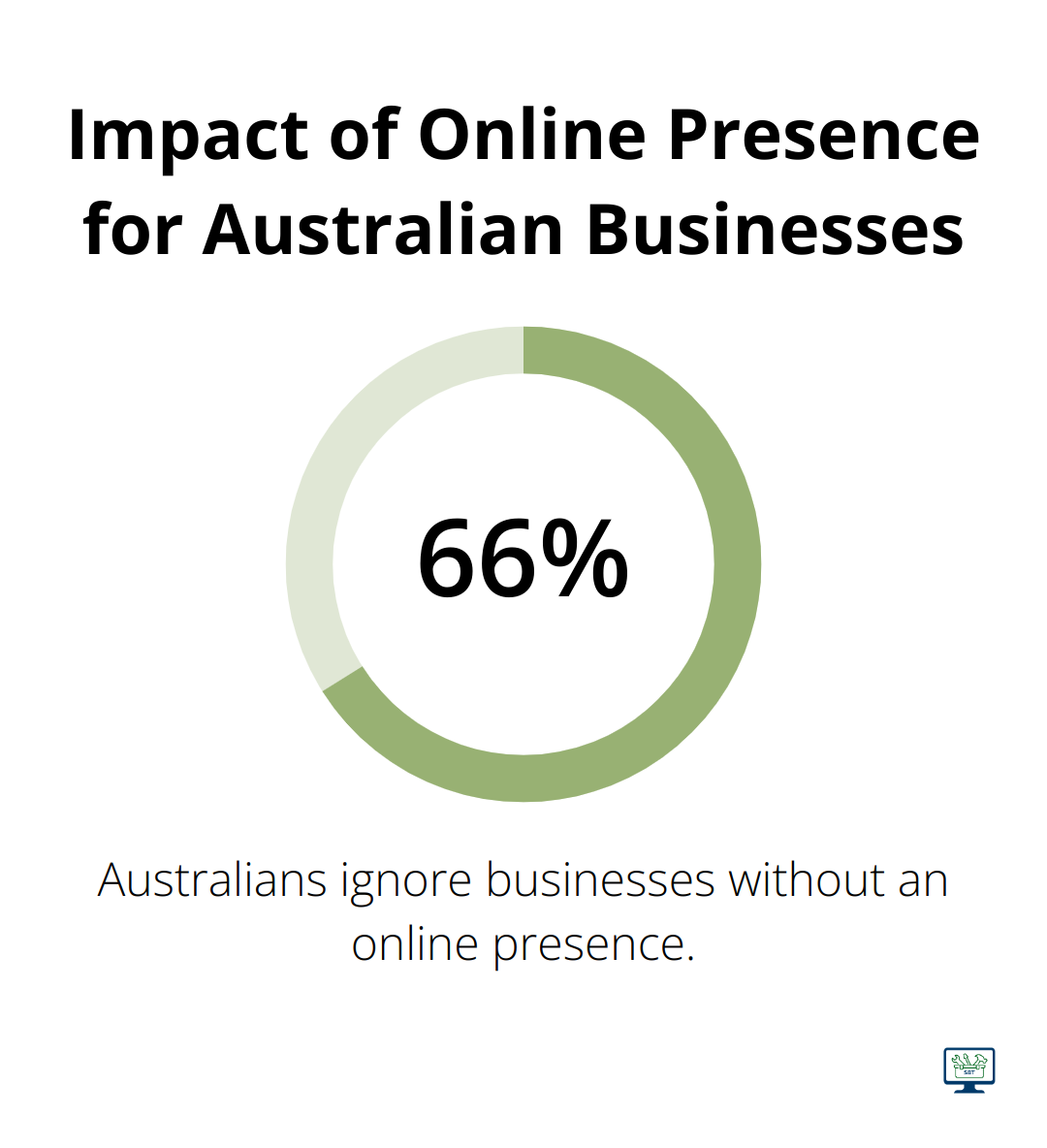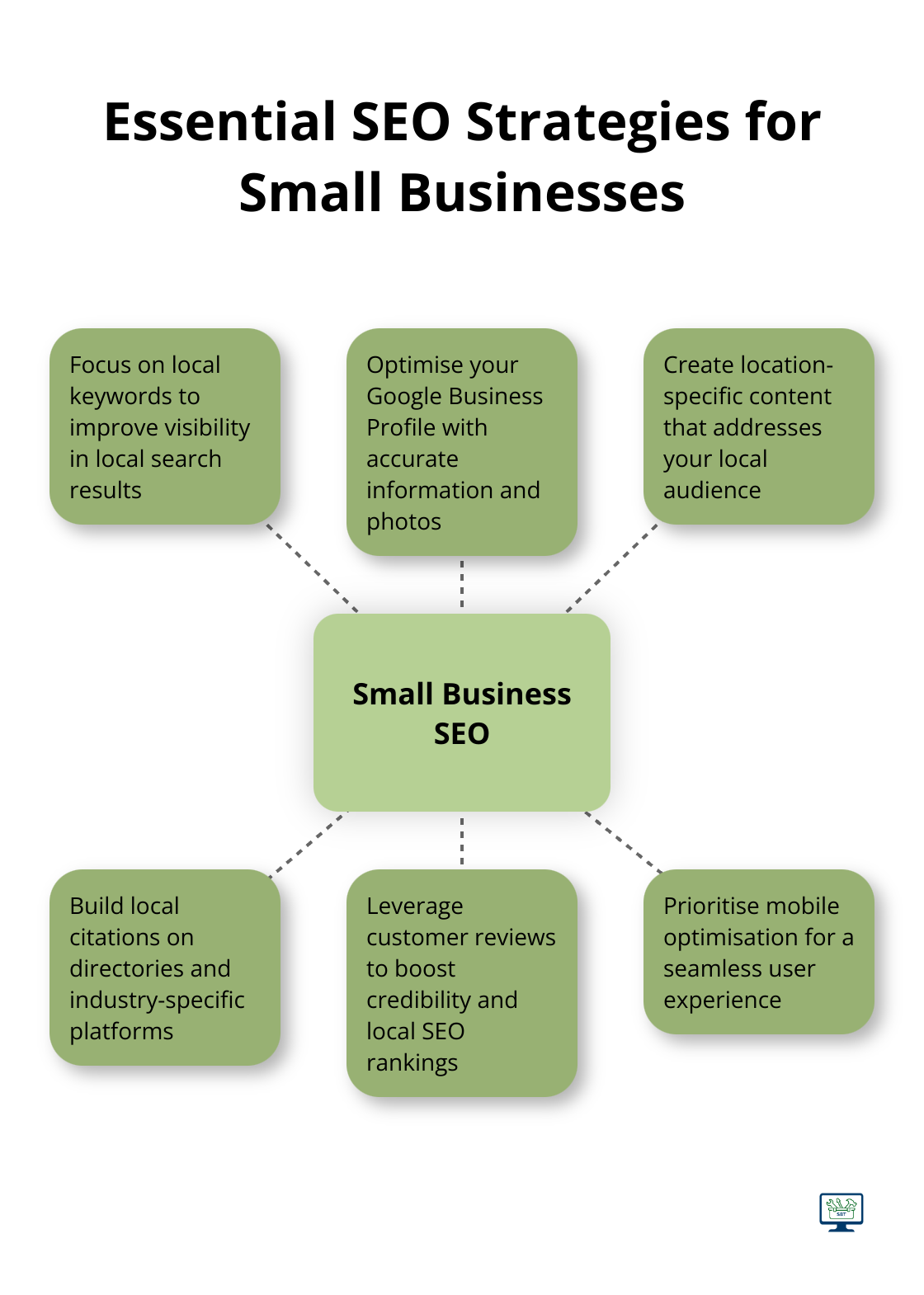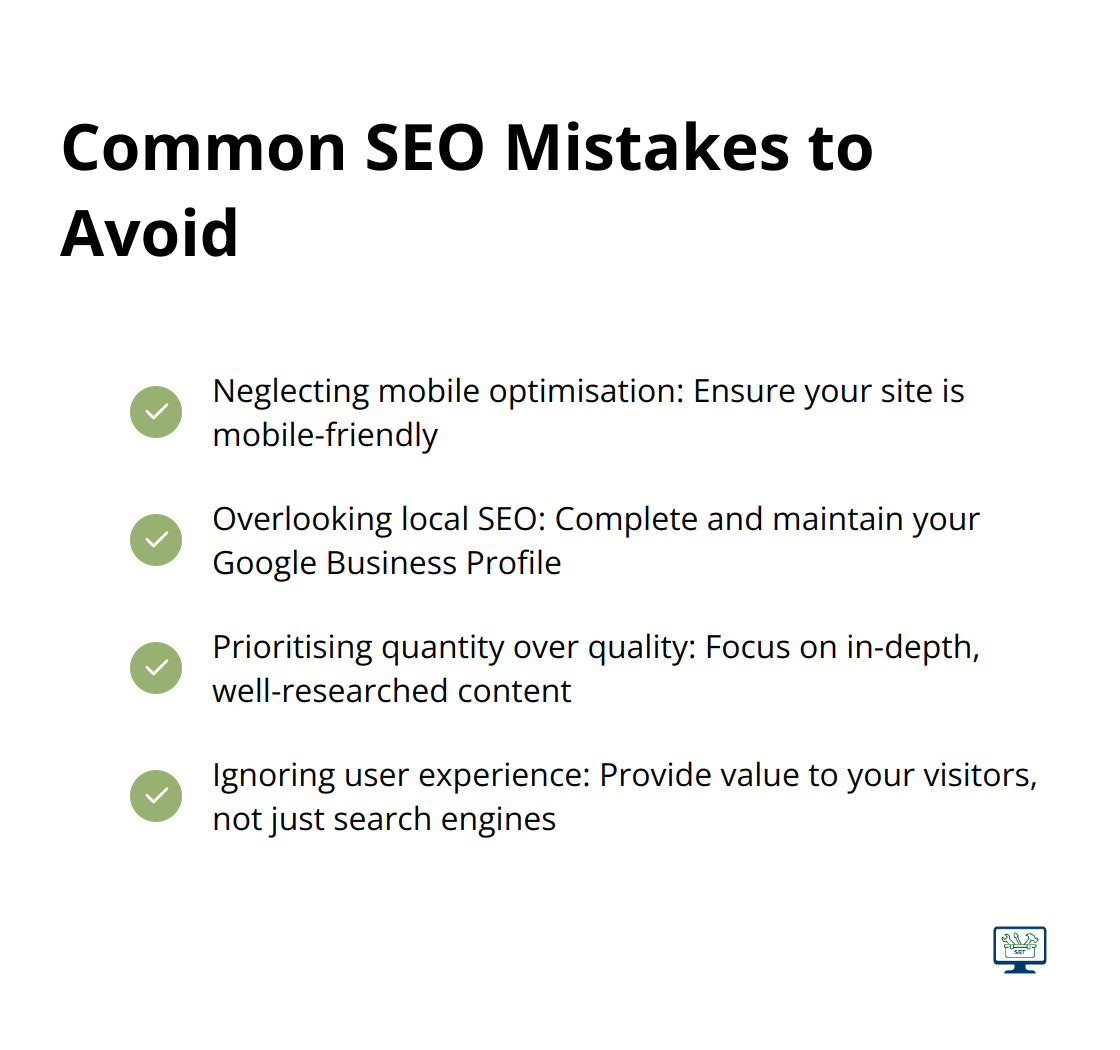How to Boost Your Small Business with SEO

Published On Aug 21,2025
SEO and small business go hand in hand in today’s digital landscape. At WebsiteStrategies, we’ve seen firsthand how effective search engine optimisation can transform local enterprises.
For small business owners in Australia, mastering SEO is no longer optional-it’s essential for growth and competitiveness. This guide will equip you with practical strategies to boost your online visibility and attract more customers through smart SEO practices.
What is SEO and Why Does it Matter for Small Businesses?
Search Engine Optimisation (SEO) helps your website climb the ranks and appear higher on a search engine results page. The more visible you are, the more people are likely to find you. For small businesses in Australia, SEO is a powerful tool for growth and competitiveness.
The Impact of Local SEO for Small Businesses
Local SEO is particularly important for small businesses. When someone searches for “best coffee shop near me” or “plumber in Sydney,” you want your business to appear at the top of those results. Almost two-thirds of Aussies will ignore a business without an online presence. This statistic underscores the immense potential of local SEO for small businesses.

Key Components of SEO
SEO is not just about inserting keywords into your website. It’s a comprehensive approach that includes:
- On-page SEO: This involves optimising individual web pages to rank higher and earn more relevant traffic. It includes elements like title tags, meta descriptions, and content optimisation.
- Off-page SEO: This refers to actions taken outside of your website to impact your rankings within search engine results pages. Building high-quality backlinks is a key part of off-page SEO.
- Technical SEO: This focuses on improving the technical aspects of your website to help search engines crawl and index it more effectively. It includes factors like site speed, mobile-friendliness, and structured data.
SEO for Small Businesses vs. Large Corporations
While the principles of SEO remain the same, the approach for small businesses often differs from that of larger corporations. Small businesses typically have a more localised focus, tighter budgets, and fewer resources. This means that SEO strategies need to be more targeted and cost-effective.
For instance, while a large corporation might target broad, highly competitive keywords, a small business might focus on long-tail keywords that are more specific to their location or niche. Long-tail keywords are typically less competitive, more specific, and have a higher conversion rate.
Quick Wins for Small Business SEO
Small businesses can often see quicker results from local SEO efforts. Optimising for local search terms and maintaining an up-to-date Google Business Profile can significantly improve visibility in local search results.
One local bakery (a client of a reputable SEO agency) saw a 200% increase in organic traffic within six months by focusing on local SEO and content optimisation. This example illustrates the potential of targeted SEO strategies for small businesses.
SEO is an ongoing process that requires consistent work and adaptation to algorithm changes. However, the potential rewards for small businesses – increased visibility, more traffic, and ultimately more customers – make it a worthwhile investment.
Now that we understand what SEO is and why it matters for small businesses, let’s explore some essential SEO strategies that can help boost your online presence and attract more customers.
Essential SEO Strategies for Small Businesses
At WebsiteStrategies, we’ve witnessed the transformative power of effective SEO for small businesses in Australia. Here are key strategies to boost your online presence and attract more customers:

Focus on Local Keywords
For small businesses, local SEO is invaluable. Start your keyword research with location-specific terms. If you’re a plumber in Brisbane, target phrases like “emergency plumber Brisbane” or “24/7 plumbing services South Brisbane”. Tools such as Google Keyword Planner or Ubersuggest can help you find relevant local search terms.
Optimise Your Google Business Profile
Your Google Business Profile (formerly Google My Business) plays a critical role in local SEO. Complete your profile with accurate information, including your business name, address, phone number, website, and business hours. Add high-quality photos and respond promptly to reviews.
Create Location-Specific Content
Develop content that directly addresses your local audience. This could include blog posts about local events, area-specific services, or community involvement. For example, a cafe in Melbourne might write about “The Best Coffee Spots in Fitzroy” or “How to Enjoy a Perfect Melbourne Brunch”.
Build Local Citations
Local citations are mentions of your business name, address, and phone number on other websites. These could be local business directories, chamber of commerce websites, or industry-specific platforms. Consistency is key – ensure your business information remains identical across all platforms.
Leverage Customer Reviews
Encourage satisfied customers to leave reviews on your Google Business Profile and other relevant platforms. BrightLocal reports that on average, local businesses have 39 Google reviews. Positive reviews not only boost your credibility but also improve your local SEO rankings.
Prioritise Mobile Optimisation
With mobile searches accounting for a significant portion of organic search engine visits in Australia, a mobile-friendly website is non-negotiable. Ensure your site loads quickly on mobile devices and provides a seamless user experience.
Implement Schema Markup
Schema markup helps search engines better understand your content. For local businesses, local business schema can be particularly beneficial. It allows you to provide detailed information about your business (including your address, phone number, and opening hours) in a format that search engines can easily interpret.
SEO requires consistent effort and adaptation to algorithm changes. However, for small businesses willing to invest the time and resources, the rewards can be substantial. Effective SEO can lead to increased visibility, more website traffic, and ultimately, more customers walking through your door.
Now that we’ve covered essential SEO strategies, let’s explore how to measure and improve your SEO performance.
How to Track and Improve Your SEO Performance
At WebsiteStrategies, we understand the importance of measuring SEO performance for small businesses. Proper tracking leads to significant improvements in search rankings and website traffic. Let’s explore how you can effectively monitor and enhance your SEO efforts.
Essential Tools for SEO Tracking
Set up Google Analytics and Google Search Console to gain valuable insights into your website’s performance. Google Analytics shows how users interact with your site, while Search Console offers data on how Google views your site.
To set up Google Analytics:
- Create an account
- Add the tracking code to your website
For Search Console:
- Verify your website ownership
- Submit your sitemap
These steps are straightforward, but you might want to consult a web developer or SEO specialist if you need assistance.
Key Metrics to Monitor
Focus on these key metrics to gauge your SEO success:
- Organic traffic: This metric shows the number of visitors who come to your site through search engines.
- Bounce rate: A high bounce rate might indicate that your content doesn’t meet user expectations.
- Average session duration: This tells you how long visitors stay on your site.
- Conversion rate: Track how many visitors take desired actions on your site (e.g., making a purchase or filling out a contact form).
- Keyword rankings: Monitor your positions for target keywords using tools like Ahrefs or SEMrush.
Techniques for Ongoing SEO Improvement
SEO requires continuous refinement. Use these techniques to improve your approach based on the data you collect:
- Regular content audits: Review and update your existing content to maintain relevance and value.
- A/B testing: Experiment with different meta titles and descriptions to improve click-through rates.
- Site speed optimisation: Use tools like Google’s PageSpeed Insights to identify and fix speed issues.
- Backlink analysis: Check your backlink profile regularly to build site authority and improve your Google rankings.
Common SEO Mistakes to Avoid
Small businesses often make these SEO mistakes:

SEO is a long-term strategy. While you might see some quick wins, sustainable results often take months to materialise. Stay patient and keep refining your approach based on data.
Final Thoughts
SEO and small business form a powerful alliance in today’s digital landscape. Effective SEO strategies boost online visibility, attract customers, and drive growth for Australian small businesses. From local keyword optimisation to creating valuable content, numerous methods exist to improve search engine rankings and establish a strong online presence.
SEO requires ongoing effort and adaptation to algorithm changes. Tracking key metrics with tools like Google Analytics helps refine strategies and make informed decisions about online presence. Avoiding common pitfalls (such as neglecting mobile optimisation) and focusing on user experience across all devices will yield better results.
WebsiteStrategies specialises in helping Australian small businesses develop tailored SEO strategies for sustainable online growth. Our experienced team provides the support and expertise needed to navigate the complex world of SEO and achieve business goals. Start implementing these SEO practices today to help your small business thrive in the digital marketplace.
